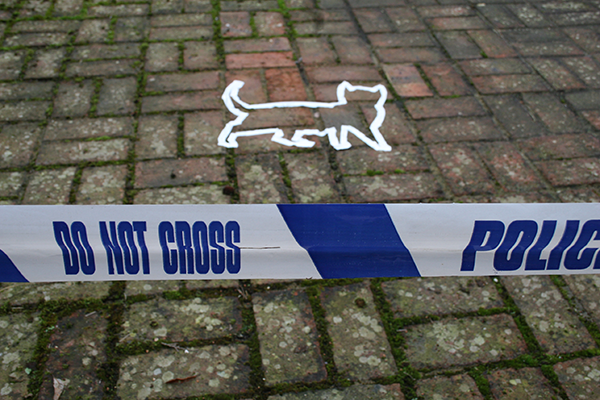The Law on Stolen Missing and Lost Cats

Can A Cat Be Stolen?
When I joined the Police way back in 1988 I can recall several incidents where I was assigned to assist in the investigation of missing cats. In most cases the owner would be elderly and had called 999 asking for help. The ensuing investigation was primarily concerned with reassuring the owner and advising them that a lost cat was not considered by the police, to be an emergency. There would usually be enough time to complete a search of the local area for the missing cat and to knock on a few doors and of course, have a cup of tea, and gather local intelligence. For some strange reason cat owners always seemed to know what was going on in the neighbourhood. However, on every occasion I was involved in missing cat investigations I would encounter an extremely distressed owner who was desperate to be reunited with their loved one and having no one else to turn too, had called the police. From the owners perspective, their missing cat was clearly an emergency and one warranting immediate police attention.
Sadly, all the owners and their missing cats will have long since passed away and police forces have become obsessed with league tables and number crunching. However, I can recall one particular incident when I located a missing cat in a neighbour’s potting shed. The guilty neighbour assured me that he must have locked Mrs Browne's cat in his shed by mistake but his bright red face and stumbling words led me to believe otherwise.
I can recall carrying, the less than grateful moggy back to his home and witnessing an incredible out-pouring of emotion from his matronly and overwhelmed owner. After numerous bear hugs, floods of tears and my pockets packed full of home made biscuits I departed in search of real villains, such as burglars, robbers and other major criminals who I believed at the time to be far more worthy of my police attention than a lost cat. However, when I look back on these incidents I realise that this is where I learnt the basic skills of policing a neighbourhood.
Unfortunately, cats continue to go missing in their thousands every week, many of which are stolen and just as in 1988, there are numerous owners who are too infirm or isolated to search for them. Perhaps the biggest loss to the community is the fact that the police will no longer assist in these calls for help and the owner’s telephone call for assistance will be greeted by an indifferent call centre employee, who has no idea of the trauma that the owner is experiencing. All too often the owner will be given a weak or inaccurate explanation of the law, and be told there is nothing that the police can do to help, leaving the owner dejected and helpless.
So What Is The Law In Relation To Cats?
Well it is slightly complicated because you need to understand how the law is applied.
Firstly there is legislation, which is introduced through an Act of Parliament. In this case we have The Theft Act 1968 in particular Section 4.1 which outlines what is defined as property (Property includes money and all other property, real or personal). So according to The Theft Act 1968 a cat is property.
Now we need to look at how the law is applied.
Police forces deploy their resources where they are needed most. That need is often driven by Home Office Directives, HODs which of course are driven by Politicians. HODs will be implemented at Force level by way of operational procedures. A police call centre employee will not have been taught the complex nature of Section 4.1 of the Theft Act nor will they have read the HODs. They will however know the Force’s operational procedures and that is what you will get when you call the police when you suspect your cat is stolen. Very few police forces will record the theft of a cat as a crime. Instead they are more likely give you a control room reference number (CAD ref) and tell you there is nothing else they can do to help. This is where you need to stand your ground and quote legislation at them. If you are sure that someone has stolen your cat, then do not let the police fop you off with a CAD reference.
However, proving theft, especially in relation to cats – which have a tendency to wander off – can be quite difficult. To establish that an offence of theft has been committed all the elements of the offence must be proven.There must be dishonesty (an act which an ordinary person would believe to be dishonest) and there must be an appropriation (taking, hiding etc) there must be property, (a cat) which must belong to another (person) and finally there must be an intention to permanently deprive (keep from the owner forever). The intention must be at the same time as the other elements of the offence are committed.
So in the case of Mrs Browne her cat had not been stolen by the neighbour, unless it could be proven that the he intended to keep the cat locked in the shed indefinitely. However a person’s appropriation of a missing cat can become dishonest if they subsequently decide (form the intent) to keep the cat – or give it to someone else – after they have found it. This is what is known as theft-by-finding.
In Summary A CAT IS PROPERTY and Therefore It Can Be Stolen.
If your cat is lost or missing then the police will not help you. However, if you suspect that someone has hidden your cat in their home, intending to keep it or a witness saw someone place your cat in a vehicle, then you have a legitimate complaint (a prima facie case) that a theft has taken place. You do not have to prove that your cat has been stolen, only that the circumstances of its disappearance give you reasonable grounds to suspect it has been stolen. It is a core function of the Police to investigate acts of theft (to investigate your allegation) and they have the power to arrest a person who they suspect has committed theft and can enter a building to make such an arrest. Having made an arrest, the arresting officer then has the power to search for evidence in relation to that particular offence i.e. your missing cat.
In Plain English this means a cat (as defined by The Theft Act 1968) Is property. Therefore it logically follows, that it can be stolen, so don’t let anyone tell you otherwise.
If your cat has gone missing or you suspect it has been stolen and the police have declined to assist, then I’m sure we can help you.
Please contact us with the full circumstances surrounding your cat’s disappearance and we will be happy to advise you and explain how The Pet Detectives recover missing and stolen cats.
Colin Butcher
Director of Operations
The Pet Detectives

